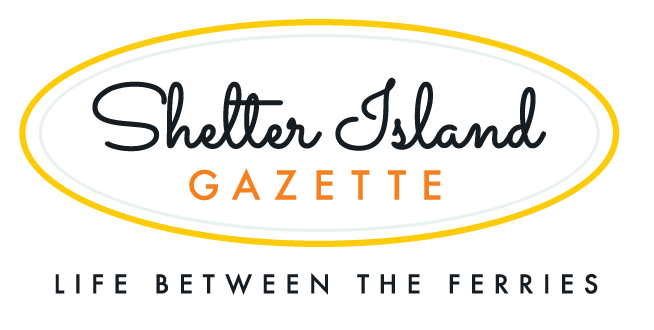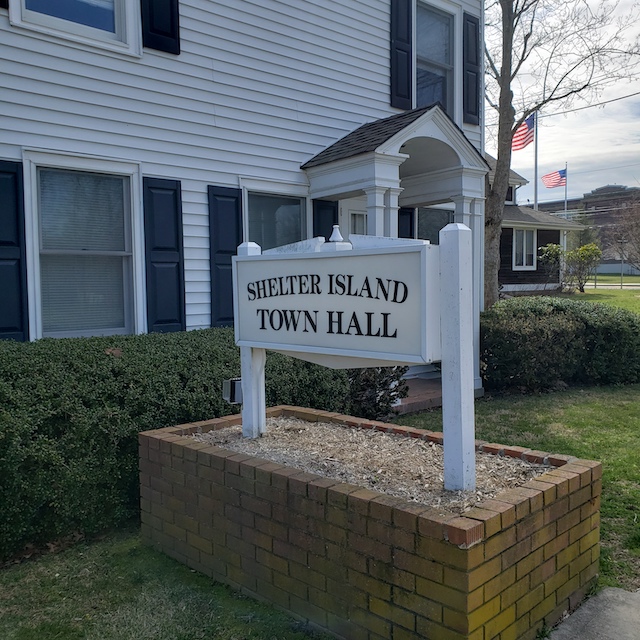Members of the Water Quality Improvement Advisory Board (WQI) say the Town should boost the value of conditional rebates to Island homeowners who voluntarily upgrade aging septics with innovative alternative onsite wastewater treatment (I/A) systems.
They also suggest making the rebates more widely available here by dropping a point system that was meant to focus resources on certain Island areas.
Policy carrots and sticks
NYS and Suffolk County also offer rebates (in fact, you have to qualify there first to be eligible for local awards). The shared goal among regulators is to protect ground and surface waters from nitrogen pollution, with rebates acting as policy “carrots” to encourage widespread voluntary adoption.
However, rebates aren’t available when septic upgrades are required, such as for new construction or home alterations that expand septic output. And, over time, regulators are expected to introduce additional triggers for mandatory upgrades, such as when a home transfers ownership.
These restrictions serve as “sticks” to inspire homeowners to take voluntary action, where possible, before new regulations are enacted.
WQI: Boost rebate values
WQI Chair James Eklund and member Greg Toner appeared at the Town Board work session on Tuesday along with WQI clerk Coco Lee Thuman. They walked the Town Board through proposed changes to the local rebates, including raising:
- the Town’s basic award cap from $6,000 to $12,000
- its shallow drain fields cap from $2,000 to $5,000
- local funding for well relocations from $2,000 to $4,000, where homeowners must comply with system setbacks
They also suggested dropping a point system that dates from the program’s early days to prioritize funding for certain Island areas. It may have had the unintended effect of indicating that upgrades are less valued in other areas. Early on, the WQI got about 20 applications per year, but that has dwindled to three or four, Eklund said.
“Yeah, it’s free money, but it’s a pain in the neck to get,” Eklund said. “We want to get people in the frame of mind of ‘let’s do this.”
The WQI also wants to expand the list of covered costs to include some testing and landscaping expenses directly related to installation.
Should the Town Board agree to raise the rebate caps, the WQI team floated the option of making the new limits retroactive, so the homeowners who’ve already been through the process may re-apply to increase their awards. Of course, the total of all rebates — local, county, and state combined — cannot exceed the eligible installation costs.
Town Attorney Stephen F. Kiely said he’d work with WQI and Town Board representatives to further vet the proposals and schedule additional review for a future work session. Among the vexing questions as yet unanswered is whether and how to best assist homeowners with systems that are deemed to have failed (simply due to their age or type of construction) but are still operational.
“We support giving them grants,” Eklund said.
Streamlining the process
The systems themselves are pretty straightforward. Conventional septics separate solids (stored in a buried tank for periodic pump out) from liquid wastes, which are dispersed into the ground via leaching pools.
In I/A systems, wastes are separated, but the liquid waste is then subject to a treatment protocol to reduce nitrogen. The treated effluent may be sent to leaching pools or, for even better nitrogen reduction, be dispersed into the ground via shallow pressurized drain fields. Homeowners choose among vendors and systems certified by the Suffolk County Department of Health Services.
But applying for grants is anything but simple. So the WQI has also worked to streamline the process and improve the applicant’s experience.
The Town’s WQI board administers the local rebate program, which is funded via a set aside of 20 percent of annual Community Preservation Fund revenues approved by voters in 2016. So far, 46 projects with an average cost of about $35,000 have been awarded their conditional rebates (others are still working their way through the system, and average costs are rising).
Several elements have contributed to the slow pace of adoption here and throughout Suffolk County. First, only a few contractors were initially authorized to install the systems, and they had limited capacities (more have come on board). Second, the pandemic created general backlogs of work due to reduced hours of operations in the key county and NYS departments and among installers (the county’s computer hack further exacerbated delays).
Third, an early IRS decision to view rebates as income also dampened consumer enthusiasm. Last year, the IRS reversed itself and said rebates for septic improvement in Suffolk County would not be considered part of a homeowner’s income for tax purposes.
To streamline the local process, the WQI on Tuesday presented revamped application materials with five documents:
- a flowchart and process summary
- funding policy and restrictions
- application form and instructions
- request for payment and calculation form
- conditional rebate agreement
The WQI has posted the documents on its website and a revision summary highlighting the proposed changes. We recommend you keep them handy if you plan to watch the presentation on the Town’s YouTube Channel or its public access Channel 22. While the advisory board has streamlined the process, it remains complex.
Meantime, the WQI board is working on a separate project that would seek to identify areas where it might offer “concierge” services to groups of homeowners — possibly combining their projects to realize economies of scale with a selected vendor, shepherding their rebate applications, and providing project management services — to improve nitrogen reduction in entire neighborhoods.





